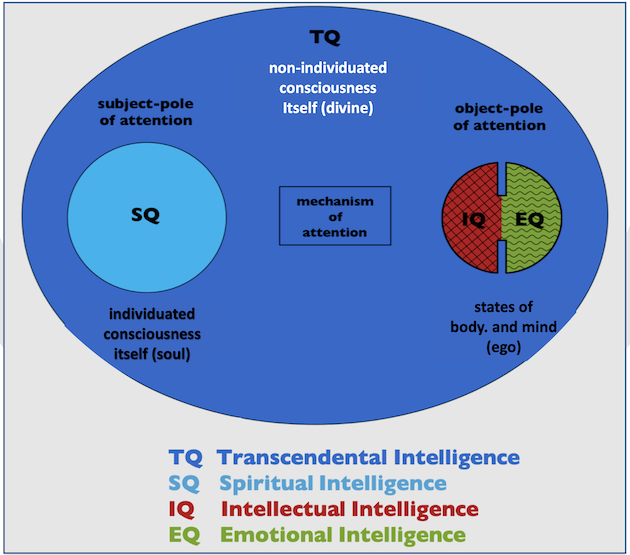
Comment
From The Full Spectrum of Intelligence
I thought I’d share a quote with you from U.G. Krishnamurti that pertains to your website, please don’t take offense. “You assume that there is such a issue as truth, you assume that there is such a issue as reality (ultimate or otherwise) – it is that assumption that is creating the challenge, the suffering for you.”
Reply
This quotation from UG Krishnamurti may appear to conflict with the information on this site about spiritual intelligence. I guess that’s why you posted this quotation here. But in fact there’s no conflict, although there’s a significant difference in perspective that’s important to understand. This statement by Krishnamurti is made from the perspective of transcendental intelligence (TQ) which is the dimension of intelligence beyond spiritual intelligence (SQ). The perspective of TQ is different than the perspective of SQ, as explained below.
Transcendental Intelligence (TQ)
When experienced with transcendental intelligence, all forms of conditional reality are like dreams to one who is awake. Everything is recognised as a form of consciousness in TQ. Therefore there is no such thing as “external reality” from the TQ point of view. So-called external reality is recognised as a modification of, in, and as, transcendental consciousness itself. This ultimate realisation abolishes suffering, because when there is no separate world, there is also no sense of separate self, and therefore there is no one to suffer. Accordingly, speaking with transcendental intelligence, Krishnamurti is right to say that suffering results from assuming the existence of an external reality outside of consciousness. TQ however represents the ultimate dimension of intelligence. But SQ is at a different level. SQ represents a stepped-down dimension, from the perspective of the apparently individuated soul.
Spiritual Intelligence (SQ)
From the SQ perspective, the soul is experienced as an apparently individuated self. To understand the difference between SQ and TQ, consider as an analogy the different levels of scientific explanation in physics. TQ is analogous to nuclear physics, which applies to the fundamental structure of matter. Whereas SQ is analogous to Newtonian physics, which applies to the macro world. However, nuclear physics at the micro level doesn’t invalidate Newtonian physics at the macro level. Similarly, TQ at the transcendental level doesn’t invalidate SQ at the causal level (or soul level). They are simply different levels of experience and understanding. Thus Krishnamurti’s statement quoted above only appears to conflict with the information on this site. In fact there is no conflict, because Krishnamurti is speaking from the perspective of TQ, whereas the articles on this site are written from the perspective of SQ.
SQ and TQ
Many people are confused and misled by apparent contradictions between different spiritual teachings and traditions. A common source of confusion is the difference between soul realisation and transcendental realisation, which corresponds to the difference between SQ and TQ. This confusion represents an obstacle to progress for many sincere seekers of truth. Therefore it’s necessary to comprehend the difference between SQ and TQ in order to understand any spiritual tradition, and in order to understand the relationship between different spiritual traditions. On the basis of such a comprehensive understanding, it’s evident that all traditions of religion and spirituality, whatever their differences, represent one stage or another in the same great tradition of spirituality.
Comment
From Spirituality for Atheists
Most people have overlooked this middle idea. Your post on this subject is just what I wanted to actually set the record straight. Please continue the research.
Reply
I like how you describe SQ as the “middle idea”. That’s right. SQ represents the intelligence of individuated feeling-awareness itself (or the soul), whereas TQ represents the intelligence of non-individuated feeling-awareness itself (or the divine). As the intelligence of the soul, SQ is the intermediate stage between the ego and transcendental intelligence (TQ). In this sense SQ represents the “middle idea”. However, as you said in your comment, many have overlooked this intermediate stage.
For example, TQ traditions, such as Advaita Vedanta and Buddhism, overlook SQ because soul realisation is a lesser realisation than transcendental realisation. The individuated soul is outshone in non-dual TQ realisation. For this reason TQ traditions overlook SQ as an intermediate stage, in order to fulfil their mission of representing unqualified soul-transcending TQ realisation.
However, other spiritual traditions overlook SQ as an intermediate stage for a different reason. Many popular spiritual teachings overlook SQ as an intermediate stage because they mistakenly regard SQ as the ultimate state of awareness. It’s common to come across teachings that confuse soul realisation (SQ) with transcendental realisation (TQ), as if SQ represented the ultimate dimension of intelligence. But this is not so. TQ represents the ultimate dimension of intelligence. As the intelligence of non-individuated feeling-awareness itself, TQ is associated with the experience of being lived by the whole, with no separate self identity, ether as the ego or the soul. Consequently, it’s false to suggest that the ultimate state of awareness can be experienced while identified as a separate individual. This popular misconception conflates soul realisation (SQ) with transcendental realisation (TQ). The SQ paradigm corrects this false view by identifying SQ as the “middle” state, representing soul realisation, that stands between the state of the ego and the ultimate transcendental state (ref).
Another sense in which SQ is the “middle idea” is that SQ represents the synthesis of the two fundamental ideas in the history of the western intellectual and cultural tradition, namely theism and materialism. SQ finds the middle ground between these two opposing viewpoints, which have dominated collective consciousness jointly for the last two thousand years. SQ represents the synthesis of theism and materialism, in the form of secular non-theistic spirituality. SQ is spiritual, but not supernatural. SQ is non-theistic, but not anti-transcendental. SQ is empirical, but not materialist. Thus SQ is both secular and spiritual at the same time, which represents the “middle idea” (or the synthesis) with respect to the traditional characterisation of “secular” and “spiritual” as polar opposites. Such is the mark of a new paradigm, when fundamental opposites are reconciled and superseded in a new synthesis.
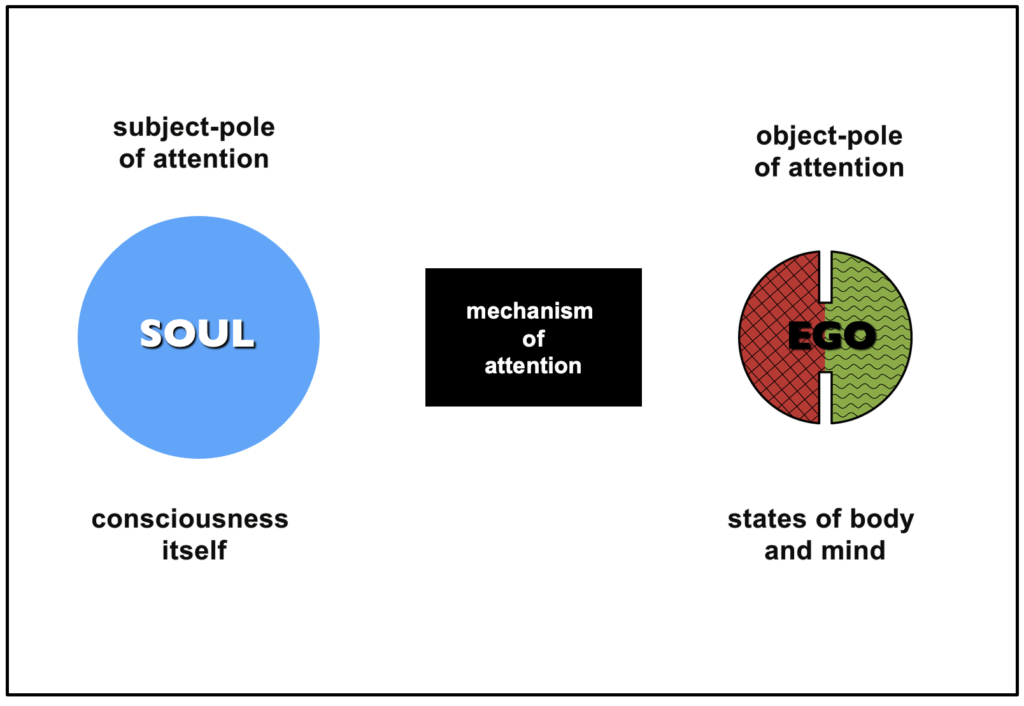
Human Operating System
Comment
From The Full Spectrum of Intelligence
Keep your eye on eternal goals.
Reply
I think I know what you mean, but your choice of words could easily lead to misunderstanding. Spirituality is not about having “goals”, either temporary goals or eternal goals. A “goal” is something in the future, whereas spirituality is about being in the present moment. Spirituality certainly connects with the eternal, as you suggest in your comment, but it does so by realising the eternal in the present moment. What is eternal in the present moment? The qualities of the soul.
The qualities of the soul are the native qualities of consciousness itself, which are experienced at the subject-pole of attention in moments of presence, in the form of wisdom, compassion, integrity, joy, love, creativity, and peace. Thus spirituality is about being present, not about having “goals” for the future. This does not imply that there is anything wrong or “un-spiritual” in having goals. We all need goals. It’s just that having goals, even “eternal” goals, is not what spirituality is all about.
Also, your expression “keep your eye on” gives the impression that spirituality is primarily a thinking matter. However spirituality is not primarily about thinking, or “keeping your eye on” something. Spirituality is concerned with what you are being, and only secondarily is spirituality related to what you are thinking about. Are you being the ego (at the object-pole of attention), or are you being the soul (at the subject-pole of attention)? That’s the essential issue relevant to spirituality. When you exercise your spiritual intelligence, you are being the soul in relation to whatever you are thinking about, regardless of whether you are thinking about “eternal goals” or about what you are having for dinner.
Therefore, for the above reasons, your expression “keep your eye on eternal goals” runs the risk of misleading people into thinking that spirituality is primarily a thinking matter, and that it is focused on future goals. Whereas in fact spirituality is first and foremost about what you are being, not what you are thinking, and it’s about the present, not the future.
So rather than saying “keep your eye on eternal goals” it’s more accurate and less misleading to say “combine yourself with the eternal in every moment”. Isn’t it wonderful to realise that we can invest ourselves in the eternal, even while alive in mortal human form? We can actually experience the eternal qualities of the soul right now, at the subject-pole of attention, in the form of wisdom, compassion, integrity, joy, love, creativity, and peace. Our awareness is therefore not limited to passing impressions at the object-pole of attention, via the five senses of the finite human body, as asserted by the propaganda of the dominant materialist paradigm. On the contrary, at the subject-pole of attention, we participate in the infinite and eternal qualities of the soul, in the experience of spiritual intelligence.
3Q Training
As a powerful combination of three principal dimensions of intelligence, 3Q represents IQ and EQ in association with SQ. Studies in neuroscience reveal that the experience of spiritual intelligence is correlated with hemispheric synchronisation and whole brain activation [ref]. Consequently, coaching in 3Q trains the whole brain. The resulting whole-brain coherence optimises brain function and replaces the ego with the soul by shifting identification from the object-pole to the subject-pole of attention via the SQ portal, which results in greater fulfilment, increased creativity, sharpened intuition, more empathy and compassion, and improved performance on a wide range of work skills and life skills. For information about the 3Q Training Course, click HERE
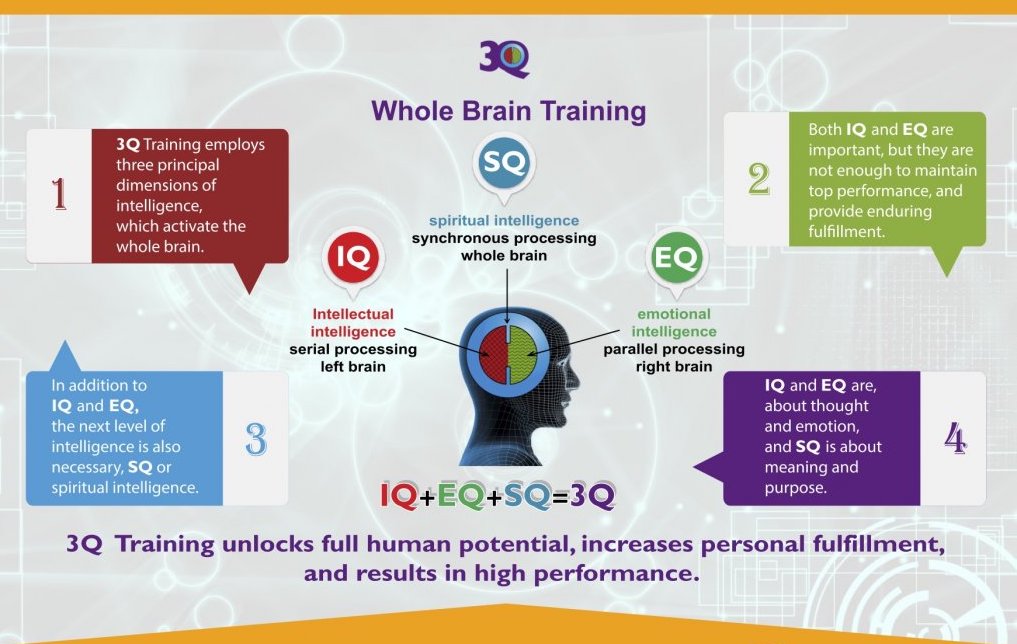
Sources
The SQ paradigm is based on a synthesis combining the wisdom of ancient spiritual traditions with the findings of modern science, as summarised in this article HERE
How to Experience Spiritual Intelligence [Video]
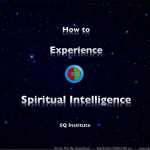 Spiritual intelligence is easy to experience. We all experience SQ spontaneously at times. But spontaneous moments of SQ are rare and unpredictable. Therefore it’s important to know how to experience SQ intentionally. When you can engage your spiritual intelligence voluntarily, at any time of your own choosing, SQ becomes your most powerful personal resource. This video provides step-by-step instructions on how to activate SQ intentionally. Watch the video HERE
Spiritual intelligence is easy to experience. We all experience SQ spontaneously at times. But spontaneous moments of SQ are rare and unpredictable. Therefore it’s important to know how to experience SQ intentionally. When you can engage your spiritual intelligence voluntarily, at any time of your own choosing, SQ becomes your most powerful personal resource. This video provides step-by-step instructions on how to activate SQ intentionally. Watch the video HERE

3Q Practitioner Training Course
Do you want to accelerate your own personal and spiritual growth, and teach others to do the same? The 3Q Practitioner Training Course trains and certifies Spiritual Intelligence Practitioners.
Spiritual Intelligence is a higher dimension of intelligence beyond the ego that has access to the advanced capabilities of the true self. The methodology used in the Course is secular not religious. Consequently, the methodology is not based on belief but on experience and knowledge, and is backed by evidence from related fields of scientific research. Certified Practitioners are provided with the training materials to coach their clients in spiritual intelligence, and conduct workshops in spiritual intelligence for leaders and organisations, and for the general public.
As the intelligence of the true self beyond the ego, spiritual intelligence (SQ) has many benefits that exceed the scope of intellectual intelligence (IQ) and emotional intelligence (EQ). Spiritual intelligence relieves anxiety and depression and the extreme pain of meaninglessness and despair that is often associated with ego states of awareness. Freedom from ego, as experienced with SQ, grants wisdom and clarity of vision, combined with more empathy and compassion, which increases creativity and intuition, and results in greater personal fulfilment and better performance on important life skills and work skills. Spiritual intelligence therefore represents the most powerful resource for personal and professional growth and fulfilment.
Widespread adoption of spiritual intelligence as a personal code of conduct raises the standard of accountability in collective governance, in response to public demand. When standards in governments and corporations are based on spiritual intelligence, the energy of love will turn into a social and political force, as never before in history. Public training in spiritual intelligence therefore heralds a new era of human rights and social justice, which form the foundation for global cooperative community, shared prosperity, and world peace.
As a 3Q Practitioner you will be equipped to introduce spiritual intelligence in the context of contemporary secular culture, and contribute to the next stage in the evolution of collective consciousness. When a tipping point is reached, the emerging next stage of collective consciousness will result in global transformation, founded not on beliefs of any sort, or on government control, or on mass media narratives enforced by censorship of contrary views, but founded instead on the inherent qualities of consciousness itself, such as love, wisdom, and peace, which everyone can experience by activating their spiritual intelligence.
For more information about the 3Q Practitioner Training Course, click HERE
© 2012 – 2023, Richard Griffiths.
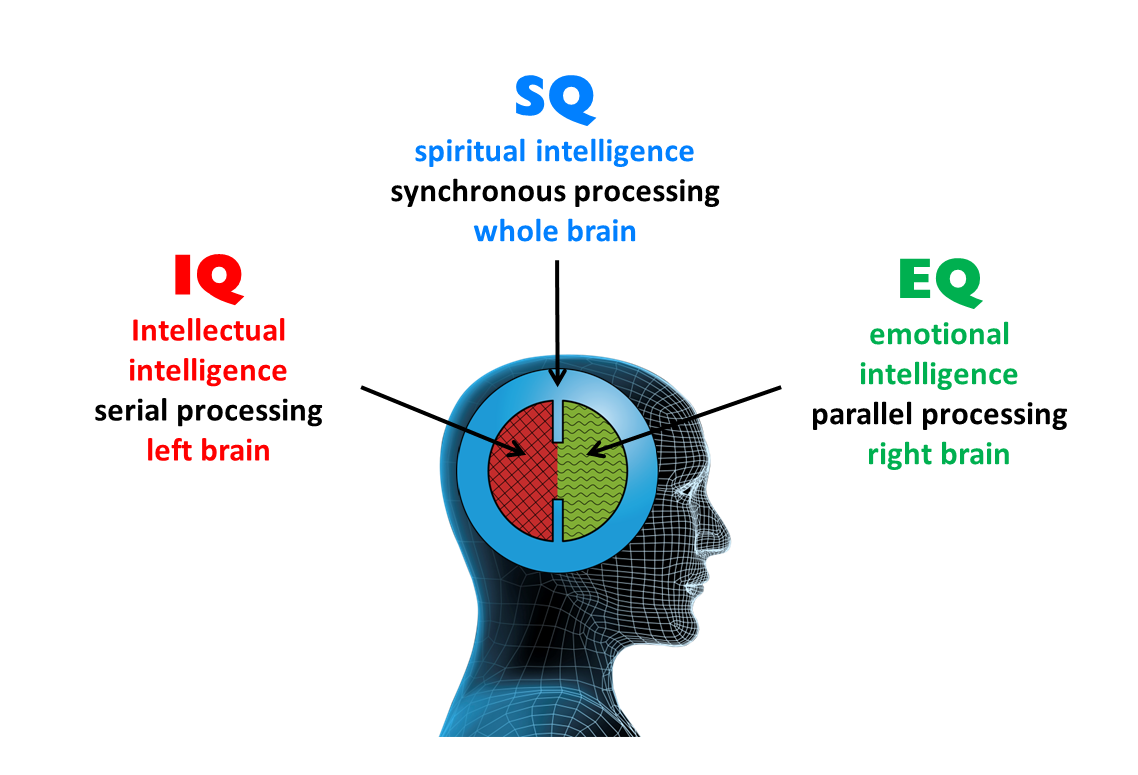
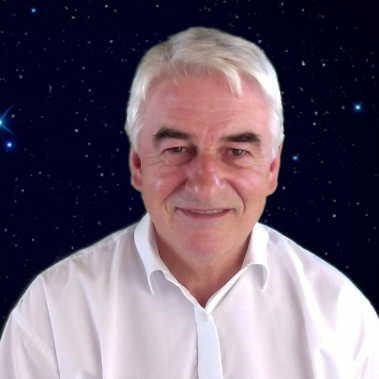
Comments on this entry are closed.
Thanks, I’ve been hunting for facts about this subject matter for ages and your website is the best source of information I have found so far.
This whole subject I always found a bit confusing, but your post explains things clearly and answered my questions. Great job!
Please continue to publish on this topic. There is greater demand than you might anticipate for this form of info and assistance. What you reveal is useful to people who are seeking to understand this subject.
Thanks for the post. I thought it was awesome.
Your site is the best I’ve ever found on the net. Really very interesting .
Just wanted to say many thanks – helped solve some things I wasn’t sure about!